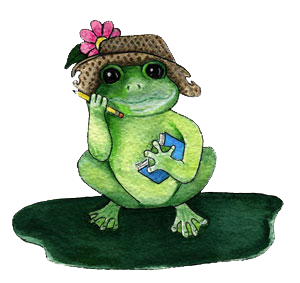Mom’s maternal instincts were just that; instinctive. Her own mother had died while Mom was still a toddler; her father died several years later. At five years of age, she was standing on a box to reach the ironing board and taking care of her dad and a brother one year younger than she. She adored her father and, from all reports, he was one of the kinder hearted men of his generation.
The nuns in “Sister School” (Mom always used this term) were the closest to maternal role models for Mom. Mom obeyed more easily than her brother, who spent lots of time on the wrong side of the ruler. Mom needed consoling when her brother was punished; she inevitably cried for him and ended up on the nun’s lap, hearing the nun explain that the punishment was for his own good; no doubt, some highlights of Hell were tossed in for good measure.
Mom understood she couldn’t save her brother from the nun’s wrath, so she reasoned that by being really good, she might at least save his soul; after all, she herself was especially disciplined; God might allow some of her good graces to be credited on her brother’s behalf, saving him from Eternal Doom.
Mom could occasionally fall under bad influences, as did any little girl who was easily influenced by an older family member. She thought her older cousin knew everything, so she followed his orders, painstakingly smearing Limburger cheese on the neighborhood’s door knobs one Halloween. While never caught, she both shuddered and giggled when she retold this story; her embarrassment at having done such a deed was still fresh each time she repeated it.
Basically, Mom was a good student who could be as creative and as successful and as trusting as the next little girl in her age group. Mom entertained us when she admitted to not being very bright, and laughingly shared how – as a little girl – she sincerely believed that the mailman wrote all the letters! My first reaction was one of embarrassment myself. How could my mother have been so dumb???
Childlike naiveté and trust permeated well into maturity. She committed herself to her husband and family with all her heart. Throughout her adulthood, her never-ending faith belied the role she played in loved ones’ well-being. Saving souls and protecting children from themselves seemed to be a strong, overriding motivator that compelled her to never give up on any child or loved one in spite of the reality or prevailing circumstances. Mom was consistent, if not always successful.
For us babies in the family, Mom was a particularly overly-protective, older mother. Her style might have been rather suffocating if it hadn’t already been restrictive. When we did get out of line, there was never a “Wait until your father gets home.” Mom was perfectly capable of retaining order and she did so with enough conviction in both her tone and her hand to communicate any message quite clearly.
I remember chatting in the library before the Christmas holiday; we were comparing family traditions and tales, when one of my friends happened to bring up her mother, a delightful lady with a very playful personality. Evidently, her mother had grown up near the town’s train tracks. As the cars passed by, she yearly observed that in the first group of cars were sheep; in the next group of cars were the season’s harvest of cantaloupes. Ergo, her mother reasoned that sheep lay cantaloupes.
Everything is relative. I was much relieved upon hearing that story.
